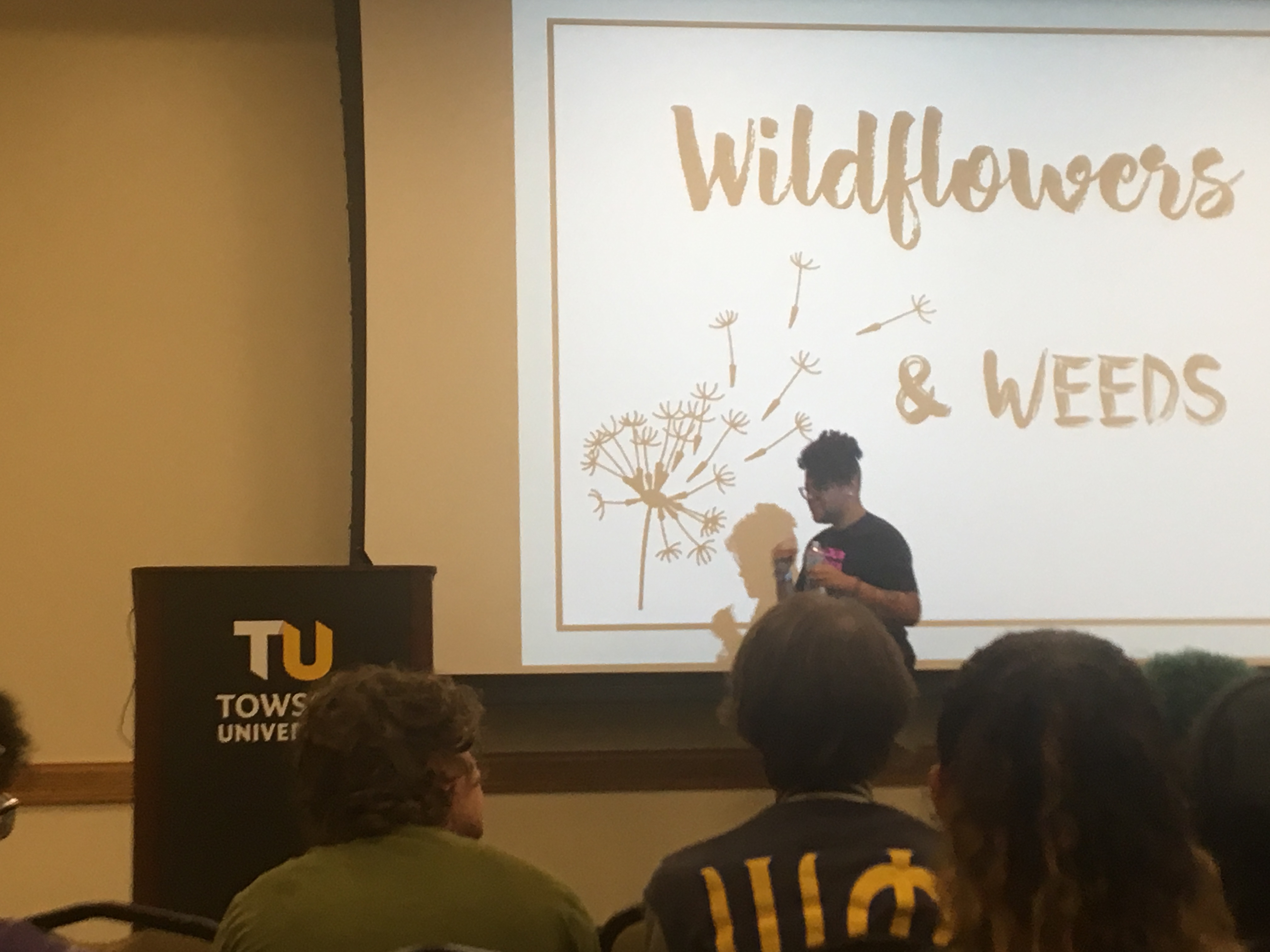
TU celebrates Queer Wellness Week
By: Grace Hebron, Staff Writer
Photo by Grace Hebron/ The Towerlight
Towson University celebrated Queer Wellness Week with events throughout the week of Nov. 4th, offering resources to students in the LGBTQ+ community.
Co-sponsored by TU Student Activities, Center for Student Diversity, Student Health Services, Campus Rec and The Counseling Center, the week ranged from a Q&A panel,“Finding an LGBTQ+ Friendly Therapist,” to the first-ever TU Ball “Work, Study, Pose,” at Johnny Unitas Stadium.
Other events throughout the week included “Take Pride Ride! Spin Class,” a workout class at Burdick Hall set to a playlist packed with queer-pride anthems and other tunes by LGBTQ+ artists. Fall Health Fair came later in the week, where student organizations and local vendors offered safe-sex item giveaways and other wellness resources.
These programs, said Allison Seeley, MPH Coordinator of Health Education and Promotion at Student Health Services, are a large initiative coming from Center for Student Diversity, Student Health Services, and Student Activities.
“Throughout the planning of these events we consulted with the Queer Student Union, GenderBLUR, In the Life, the Counseling Center, Diverse Minds Peer Educators, and Campus Rec,” Seeley said.
The week also featured guest speakers Zosia Zaks and Cavanaugh Quick.
Zaks, from the Hussman Center for Adults with Autism at TU, shared how gender diversity is often linked with neurodiversity in the third installment of “Full Spectrum, a Queer Lecture Series.”
Also part of the week, the lecture “Sex Ed Without the Sex,” Quick, a New York-based sex educator and clinical social worker, approached sex from a LGBTQ+ perspective to share ways students can use communication skills to promote sex-positive dialogue and experiences.
The guest speaker also shared their theory that trans, queer, and queer/trans individuals are descendants of dandelions in “Wildflowers and Weeds — a Lecture in Queer and Trans Resillience.”
Quick opened the lecture with a story of a college friend who, as a child, had picked and attempted to eat a dandelion after discovering that the perennial plant was edible.
“It was very dry and cloying and gluey and kind of stuck in the back of her throat,” said Quick, who grew up knowing dandelions as weeds and recalled laughing at the story.
“I don’t have a memory of my mom sitting me down and telling me how evil dandelions are,” Quick said. “I just remember my whole life being told that if you see one, you should pick it — get rid of it.”
Quick used the dandelion as a metaphor for acceptance and understanding.
Despite what they learned growing up, Quick would soon learn about the copious benefits of dandelions; how they are resilient by nature and adaptable almost anywhere.
“All parts of them are useful in some way,” Quick said. “They’re incredibly robust.”
Quick, who is queer, trans, polyamorous and AfroLatinx, said that much like dandelions, queer and trans people are “an inevitability.”
“We are proof that someone somewhere has always chosen to test their own reality and lean into it and invite curiosity into their experience regardless of what somebody else was saying to them, or about them, or trying to say for them,” they said.
Seeley hopes that the more than 300 students who attended these events took away similar positive messages.
“Throughout this week we touched on a lot of important topics and brought in a lot of local resources who serve LGBTQ+ communities,” Seeley said. “I hope students feel more connected to those resources, and more comfortable reaching out. I also really hope that students take away a feeling and sense of community on our campus.”
Sophomore international studies major Emily Simmons, who heard about Queer Wellness Week during her International Perspectives of Women class, described Quick’s lecture as informative and praised TU’s choice to celebrate the LGBTQ+ community.
“It’s just amazing, being part of a heteronormative culture, that Towson was able to provide a Queer Wellness Week and show that they’re not conforming to the heteronormative culture,” said Simmons.

